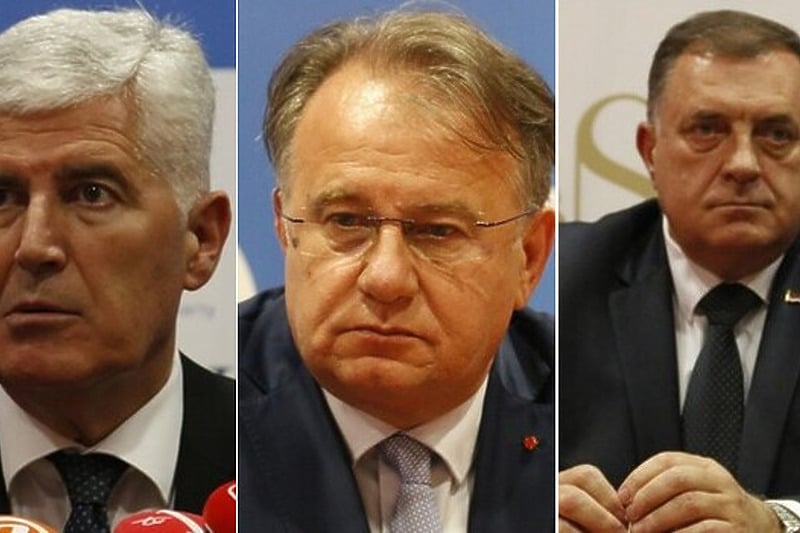 The partners of the state coalition are holding regular meetings to discuss key reforms and other actions at the level of Bosnia and Herzegovina. One such meeting will be held in Mostar today.
The partners of the state coalition are holding regular meetings to discuss key reforms and other actions at the level of Bosnia and Herzegovina. One such meeting will be held in Mostar today.
As announced by the HDZ, who are hosting the meeting this time, it is scheduled to begin at 3:00 PM at their headquarters, with a public address on what has been agreed upon planned for 4:30 PM.
The leaders of the political parties, SNSD’s Milorad Dodik and SDP’s Nermin Nikšić, have confirmed their attendance. Since the Council of Ministers of Bosnia and Herzegovina has not yet confirmed the proposal for the law on courts, this will again be one of the topics of discussion.
After the last meeting held in Sarajevo, the party leaders emphasized that they could not agree on minor details regarding this law. However, the problem is that Dodik conditions this law with the law on the Constitutional Court of Bosnia and Herzegovina. His desire is to remove foreign judges from the highest judicial body in Bosnia and Herzegovina and introduce national decision-making, but this is something the Troika cannot agree to. They had previously agreed to form a working group to work on this law, but Dodik has pointed out that the leaders of the Troika have not yet proposed their representatives to that body.
Nikšić and Dodik commented on their expectations ahead of today’s meeting, while Čović did not comment, although it is clear that his priority is the Election Law of Bosnia and Herzegovina.
“What will be the epicenter of all discussions are the Election Law and the Constitutional Court. I think we won’t be able to move forward until we resolve that. It’s not a threat,” Dodik said.
During yesterday’s visit to Mostar, Dodik focused, among other things, on the Election Law of Bosnia and Herzegovina, claiming that the solution brought by High Representative Christian Schmidt actually does not suit Croats, but they did not realize it immediately. According to him, if Bosniaks unite, they could exclude Croats in the next elections, and that’s why the law needs to be changed, although it’s unclear how he arrived at this calculation, which is not feasible.
“So Schmidt comes and sets the law, and it suits Croats, and Croats are extremely pleased until they realize that next time, if Schmidt’s rules are applied, and if Muslims unite to the point where there is no quarrel among them, then there will be no Croats in the structures of power. That’s what he did to them. Now we need to change the Election Law, that’s it. And should I talk about it, or should someone who represents Croats?” Dodik said.
He then mentioned that Bosniaks protested against Schmidt’s decision and said it was unacceptable “until they realized some things.”
“They didn’t realize that they can still reach Croats in the next elections, and unfortunately, something like that will happen. And then there will be no Bosnia, it’s simply impossible,” he said.
Nermin Nikšić also expressed his expectations for the meeting, stating that, judging by the statements, he believes there will be conditioning, but he claims they will not agree to it. In addition, he notes that they are ready for discussions and compromises to find solutions to open issues and emphasizes that it is worth making an effort to find an agreement, as it would enable Bosnia and Herzegovina to start negotiations with the EU.